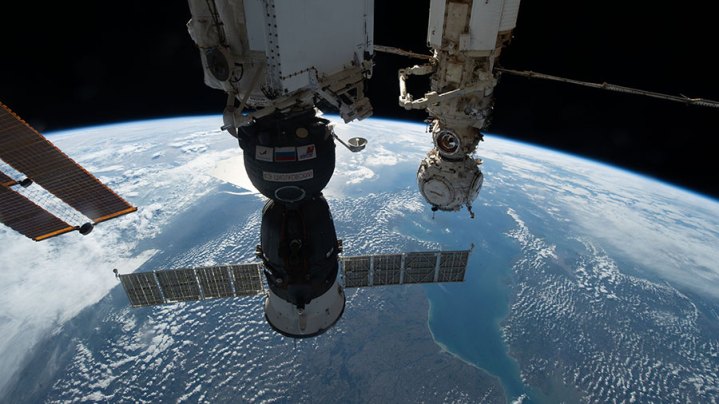A leak in a Soyuz capsule docked to the International Space Station is causing temperatures in the spacecraft to rise but is not putting the crew in any danger, according to the Russian space agency Roscosmos.
The leak occurred on Wednesday this week, with video footage showing what appeared to be coolant leaking out of the Soyuz spacecraft which is docked to the station’s Rassvet module. Roscosmos said it had been investigating the leak, and in a statement on Friday it announced there was a “slight change in temperature” on the Soyuz but it was “not critical for the operation of the equipment and the comfort of the crew.”

NASA shared more information about the issue, writing that “As part of the ongoing evaluation and investigation, Roscosmos flight controllers conducted a successful test of the Soyuz MS-22 thrusters at 3:08 a.m. EST Friday, Dec. 16. The systems that were tested were nominal, and Roscosmos assessments of additional Soyuz systems continue.” The agency went on to say that temperatures within the Soyuz, even if they are rising, are “within acceptable limits.”
While the crew of the ISS are safe, there are concerns that the issue could effect a planned flight using the Soyuz which would return three crew members to Earth. However, this flight is not scheduled until March so there is time for another Soyuz to be sent to the station to take them home instead.
The issue also caused a spacewalk to be cancelled. Two Russian cosmonauts, Sergey Prokopyev and Dmitri Petelin, had been preparing to perform a spacewalk to install new solar arrays to the station when the leak was noticed, but this was subsequently cancelled. The spacewalk has now been rescheduled for December 21.
NASA said that by Thursday, December 15, the “majority of fluid had leaked out” so the leak is not expected to get worse, but investigations will continue.
Editors' Recommendations
- Unusual issue forces NASA to call off ISS spacewalk
- NASA’s next ISS spacewalk has an unusual objective
- Boeing Starliner arrives safely at the ISS, but it sprung more leaks along the way
- What kind of view will ISS astronauts get of the solar eclipse?
- Russian Soyuz on its way to ISS after being delayed due to electrical issue



